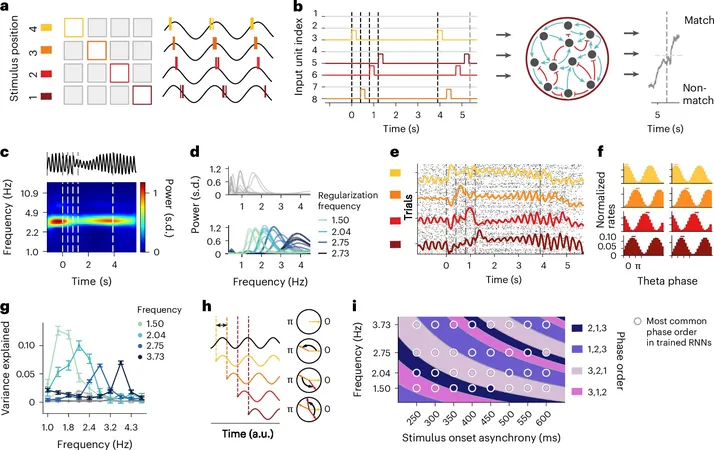
Shocking New Research Exposes Flaws in How We Understand Memory: Are Our Brains Really Wired for Sequential Firing?
2025-03-24
Author: Yu
Introduction
Have you ever wondered how your brain remembers the order of images presented to you in rapid succession? You might think that the neurons simply fire one after the other in the same sequence. This conventional perspective has dominated neuroscience for years, but new cutting-edge research is shaking the very foundations of this theory.
The Pioneering Study
A pioneering study led by Professor Florian Mormann from the University of Bonn's Department of Epileptology has put this long-held belief to the test by leveraging a unique aspect of epilepsy treatment. The research team utilized data from patients with drug-resistant epilepsy who had thin electrodes implanted in their brains. This setup allows researchers to observe individual neuron activities during tasks, making it possible to collect incredibly detailed data that has often been unavailable in other experiments.
"We are fortunate to have access to these rare single-cell recordings," stated Prof. Mormann, who heads the Cognitive and Clinical Neurophysiology Laboratory. "Such precise measurements have not been achievable until now."
Unexpected Findings
During the study, epilepsy patients were tasked with remembering and recognizing a sequence of images displayed on a screen while researchers recorded their neural activity. Astonishingly, the results showed that the neuronal firing patterns did not correspond to the order of the images as previously theorized. "Our findings were unexpected and contradicted established theories about the brain's memory functions," remarked Dr. Stefanie Liebe, the first author of the study and a key member of the research team.
AI Collaboration
To delve even deeper into these findings, the researchers partnered with experts in artificial intelligence at the University of Tübingen. Utilizing advanced AI techniques, they developed a neural network model that executed the same memory tasks as the human participants. What’s truly fascinating is that the computer exhibited firing patterns that closely mirrored those of the human brains during the exercises.
A Revolutionary Perspective
The study uncovers a revolutionary new perspective on memory formation, suggesting that rather than being a straightforward sequential process, the brain's method of retaining information might be significantly more complex. This intricate approach is believed to stem from a dynamic interplay of visual stimuli, brain oscillations, and neuron activity, challenging our understanding of cognitive processes.
Conclusion and Implications
Could this research redefine the boundaries of neuroscience? As we stand on the brink of potentially groundbreaking discoveries, the implications of these findings could reshape how we approach memory, learning, and even neurological treatments in the future. Stay tuned, as this story is far from over!




 Brasil (PT)
Brasil (PT)
 Canada (EN)
Canada (EN)
 Chile (ES)
Chile (ES)
 Česko (CS)
Česko (CS)
 대한민국 (KO)
대한민국 (KO)
 España (ES)
España (ES)
 France (FR)
France (FR)
 Hong Kong (EN)
Hong Kong (EN)
 Italia (IT)
Italia (IT)
 日本 (JA)
日本 (JA)
 Magyarország (HU)
Magyarország (HU)
 Norge (NO)
Norge (NO)
 Polska (PL)
Polska (PL)
 Schweiz (DE)
Schweiz (DE)
 Singapore (EN)
Singapore (EN)
 Sverige (SV)
Sverige (SV)
 Suomi (FI)
Suomi (FI)
 Türkiye (TR)
Türkiye (TR)
 الإمارات العربية المتحدة (AR)
الإمارات العربية المتحدة (AR)